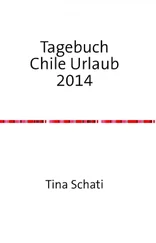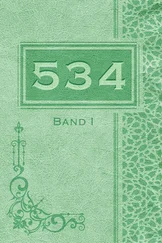The size of the gas chamber is 7 by 7 metres. In the middle of the chamber there are shower-heads through which the gas is introduced. On one of the walls a thick pipe serves as an exhaust to remove the air. Thick felt around the doors of the chamber renders them airtight.
In this building there are some ten gas chambers. At a short distance from the main structure there is a smaller one with three gas chambers. By the doors stand several Germans who shove people inside. Their hands do not rest for a moment as they scream fiendishly: — Faster, faster, keep moving!
I am already undressed and look around. I no longer have any doubts about our fate. We are helpless. I notice that in the barracks opposite us, the women and children are undressing, and we can hear their pitiful screams. It is impossible to get near them. We are ordered to line up in rows. We stand as we are ordered to. Those who are still undressing are beaten mercilessly.
When nearly all of us are lined up, the guards approach and choose some hundred men, only young ones, and have us stand aside. The others are led away. Where, no-one knows. I find myself among the chosen hundred young men. From a distance, I see my friend Rojzman with his son, and, not really knowing whether it is better for him, I gesture to him to run over to me in my group.
We stand for a few minutes until all the other men have been led away, and then we are led back to the baggage that the Jews brought with them. Each of us must grab a bundle bigger than himself; if anyone takes a smaller bundle he is whipped repeatedly. We are driven to a big space. Along the way guards are posted, arms linked in a human chain, so that no-one will escape the whips.
I am astounded by the terrible scene: you see several mountains of piled-up parcels. We are driven to one such stack where parcels of bedclothes and sacks are lying. People stand by the stack sorting the contents. I see that they are all Jews and, running past, try to ask them: — Brothers, tell me, what is this?
Unfortunately I receive no reply. Each of them tries to turn his head away so as not to have to answer. I ask them again: — Tell me, what is going on here? One of them replies: — Brother, do not ask. We are lost!
The running back and forth with the bundles happens so fast that I no longer know what is happening to me. We make several round trips, the bundles are cleared away, and we are driven back to our own piles of clothes. We are ordered to retrieve the pairs of shoes which each of us had tied by the laces. We grab the shoes and are driven back to the big open space to a second stack, which is about four storeys high and which consists of nothing but shoes, tens of thousands of pairs of shoes. After the shoes, the clothes that we men had taken off are cleared away. We change direction to another stack which consists only of clothes. After the space is finally cleared, we are driven into the barracks where the women undressed. Before my eyes lie the clothes of the poor women, among them those of my pretty young sister. I look around, but none of the women are there. They have all been led away, driven further on. I am distracted for a moment, pick up a small bundle and try to move forward. I am hit so hard with a wire whip that I nearly black out. The murderer screams at me like a stuck pig: — You dog, the bundle is too small!
I hardly know what is happening to me. I throw myself to the ground, spread my arms as wide as possible and grab as much as I can. I run out quickly, because the last ones remaining are beaten mercilessly.
We run back and forth several times with the bundles with the whips falling on us every step of the way.
I am chosen as a barber.
I sort clothing until the next transports arrive. Once, when I straighten up, I am beaten till I bleed.
I no longer know where I am in the world. Suddenly, running back for more bundles, I hear one of the murderers, an S.S. man, shout: — Which of you is a barber?
I look around and see that four undressed men are already standing to one side, among them my friend Leybl Goldfarb from our town. I run over to them and announce that I am a barber.
The murderer asks me if I am telling the truth. I answer: — Jawohl! He tells me to go over to the four others — I am the fifth.
Several others try to run over after me, but he does not want to take any more. The answer is: — Es reicht (That’s enough).
He orders us to come with him immediately to the storeroom where the sorted men’s clothes are lying. He orders the Jews working there to give us something to put on, and each of us quickly receives a pair of trousers and a jacket. I ask for a shirt, but the Jew who works there tells me to be quiet and dress as quickly as possible. He says to me: — Brother, you have been saved from death! I quickly put on the trousers and jacket. The other four Jews do the same.
The murderer leads me to another place and orders that we be given shoes. Each of us grabs a pair of shoes and quickly puts them on. We are then led to another place where Jews are sorting parcels and are ordered to stay there and sort. When a new transport arrives we are to be released, since we are intended for barbering.
I have no notion of barbering and no idea what will happen if I cannot do the work. But I tell myself that after all it cannot be worse than dying…
As I stand among the piles to be sorted, I notice other men from my transport running past, and suddenly I see my friend Rojzman among them. I yell to him to run over to the German who took me from the other place and tell him that he is a barber too. Rojzman runs over to the German and the answer is a whip over his head. Alas, that is the last time I see my friend. He is driven away for ever.
We are at once put to work sorting. My friend Leybl stands next to me. We inspect every garment as carefully as possible. On the other side of me stands a worker who has already been here for several days. I want to find out from him what happens here, since, despite the fact that I see the clothes left behind by the victims, I still cannot grasp what is going on. He advises me: — Remember, don’t talk, try to stay bent over, don’t straighten up or you will feel the whip.
I bend over more deeply and ask him again what happens here.
— Don’t you see? Here they take the lives of our nearest and dearest. Don’t you see that these are the clothes of the poor wretches who come here?
He is afraid to talk too much. The fear here is tremendously strong. I tell him that the five of us were selected from the transport as barbers and I don’t know what our work will be. I find out that he too belongs to the barbers, and that our work consists of cutting off the hair of all the women. I want to find out from him how the work is done and he answers: — You’ll see.
I leave him alone and continue to sort the clothes, one by one, just like the others. I look around and see a lot of suitcases. Each suitcase contains something different. For example, the main suitcase is for money. It quickly fills up with gold, money and valuables. From time to time a special worker, called the Gold-Jude , comes around and carries away the filled suitcases. Then there are suitcases for small valuables like watches, others for razors, cigarette lighters and various other things. Everything has to be sorted separately.
My neighbour urges me to select a good, sharp pair of scissors for my work. I find a pair of barber shears and tell my friend Leybl to do the same, since he knows about as much about barbering as I do.
The clock strikes 12.00 and we hear a bugle call. Everyone heads in the direction of the place where we are to be given a midday meal. My friend and I try to stay close to our neighbour, since we don’t yet know how things are done here. Everyone tries to get as close to the kitchen as possible. We all stand in rows of five. After a short while we move in the direction of the kitchen.
Читать дальше
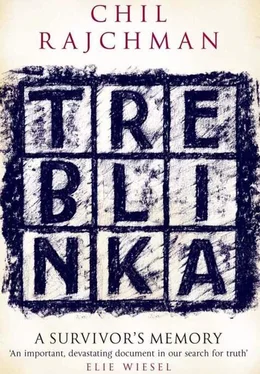




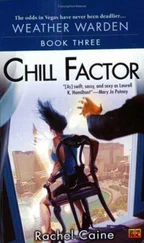
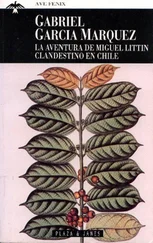
![Нед Виззини - Be More Chill [Расслабься] [litres]](/books/396819/ned-vizzini-be-more-chill-rasslabsya-litres-thumb.webp)

